Malcolm Arnold: Orchestral Music
These two works present two sharply contrasting sides of Malcolm Arnold: his limitless resources of knockabout fun, and a sense of existential tragedy. But each score presents its own surprises: the jocularity of the Grand Concerto Gastronomique – written for a Hoffnung concert – conceals some seriously good (though not seriously serious) music; and the delicately scored Ninth Symphony, written after five years when its composer had, in his own words, ‘been through hell’, irradiates its emotional restraint and elegiac tone with moments of light and warmth.
Anna Gorbachyova-Ogilvie, soprano (Track 5)
Liepāja Symphony Orchestra
John Gibbons, conductor
Listen To This Recording:
-
Grand Concerto Gastronomique for Eater, Waiter, Food and Large Orchestra, Op. 76 (1961)*
- I Prologue
- II Soup (Brown Windsor)
- III Roast Beef
- IV Cheese
- V Peach Melba
- VI Coffee, Brandy. Epilogue
- I Vivace
- II Allegretto
- III Giubiloso
- IV Lento
Symphony No. 9 in D major, Op. 128 (1986)
* FIRST RECORDINGS
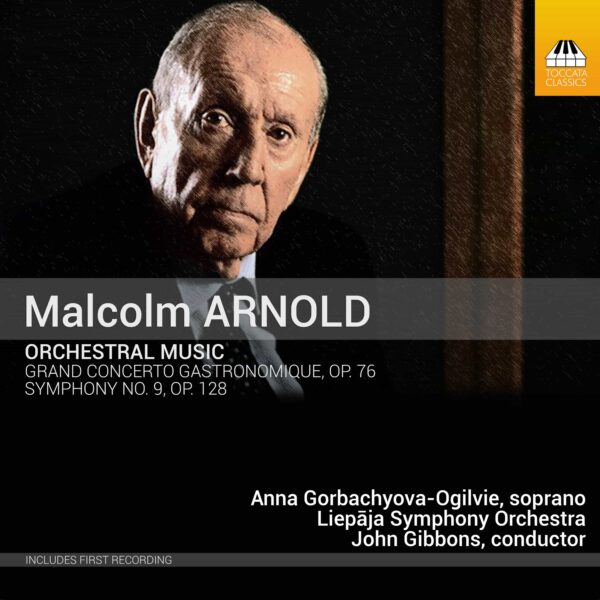
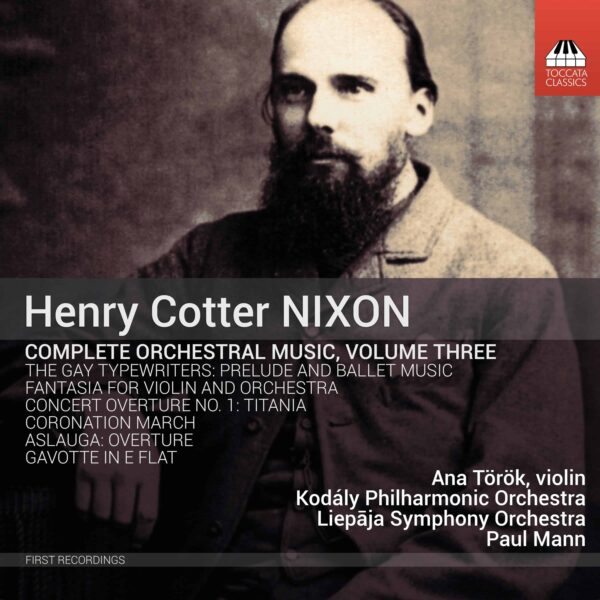
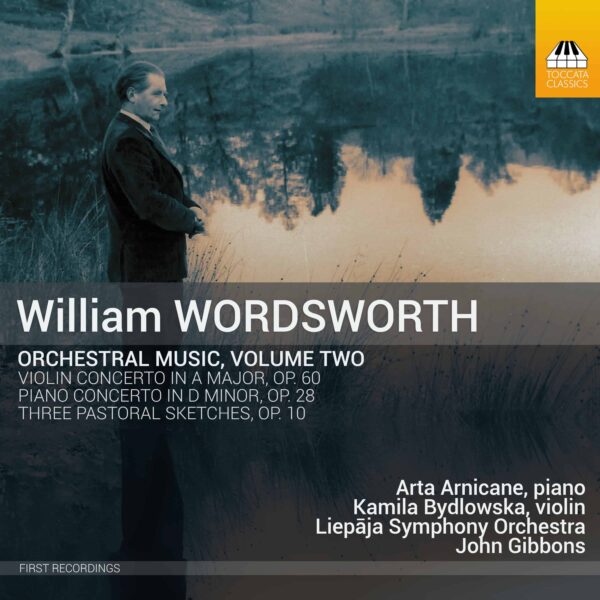
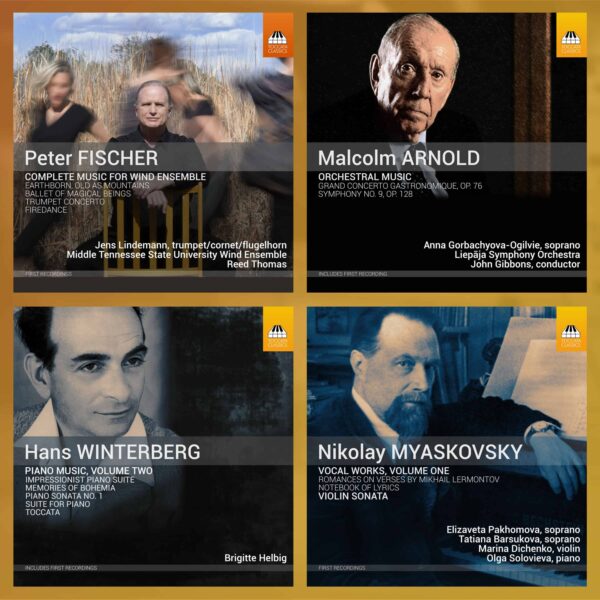
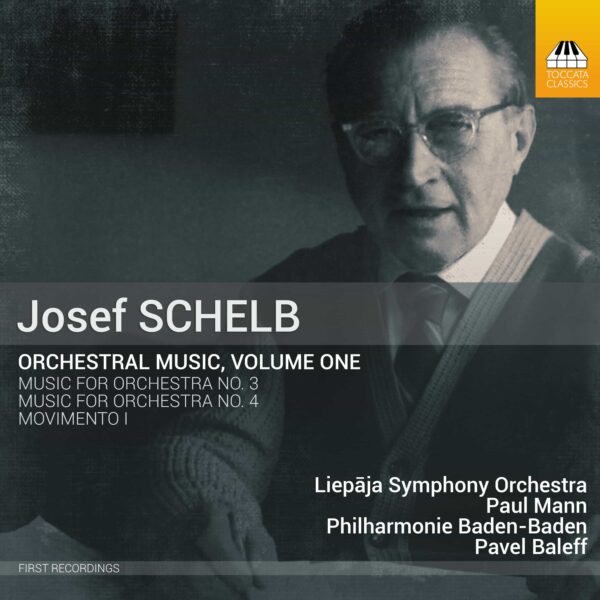
MusicWeb International :
‘Overall, this is a typically excellent disc from Toccata; first rate music receiving effective performances presented in an informative and valuable package.’
—Nick Barnard, MusicWeb International
MusicWeb International :
‘I find [Gibbons’] approach [to the 9th symphony] most convincing and likely to appeal to those still unsure about the work (although other readings are well worth investigating).
The orchestra on this recording must have been new to this music but they perform these highly different works with assurance and commitment that surely would have pleased Malcolm Arnold. The illustrated notes, enriched with music examples, are a definite asset.’
—Hubert Culot, MusicWeb International
Arcana.FM :
‘Does it all work?
As a coupling, yes. As to content, the Ninth Symphony will likely always divide opinion as to whether it is what Arnold intended or merely the best that he was able to achieve after the traumas of the preceding decade, but no-one could accuse Gibbons of realizing it as other than a cohesive entity whose formal proportions are as precisely judged as its expressive trajectory is purposefully conveyed. Listeners not convinced by those earlier recordings should certainly hear this new account, lucidly and persuasively rendered by the Liepāja Symphony Orchestra.
Is it recommended?
Yes, enhanced by thought-provoking booklet notes from Timothy Bowers along with realistic sound.’
—Richard Whitehouse, Arcana.FM